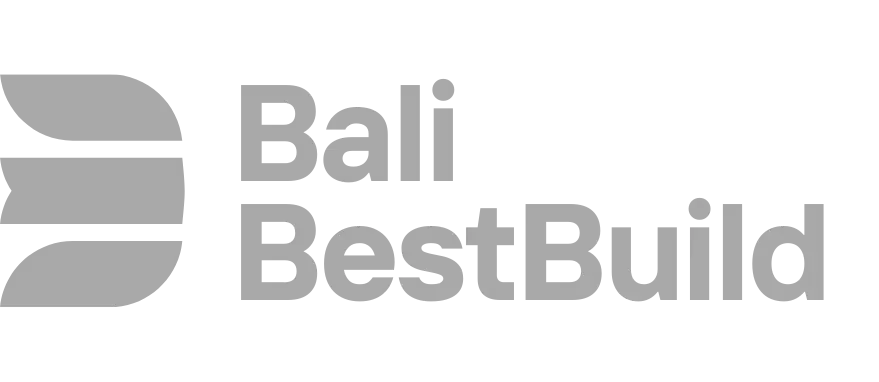Choosing the right contractor for your project is crucial to its success. A good contractor can make the difference between a smooth, stress-free construction process and a nightmare of delays, cost overruns, and shoddy workmanship. The right contractor will have the experience, expertise, and resources to complete your project on time and within budget, while delivering high-quality work that meets your expectations. On the other hand, choosing the wrong contractor can lead to a litany of problems, including subpar work, missed deadlines, and disputes over payment. Therefore, it is essential to take the time to research and identify potential contractors, ask the right questions during the interview process, check references and previous work, understand the contract and payment terms, and ensure clear communication and project management throughout the construction process.
Researching and Identifying Potential Contractors
The first step in choosing the right contractor is to research and identify potential candidates for your project. Start by asking for recommendations from friends, family, and colleagues who have had positive experiences with contractors in the past. You can also check online reviews and ratings on websites such as Angie’s List, Yelp, and the Better Business Bureau. Once you have a list of potential contractors, take the time to research their credentials, experience, and track record. Look for contractors who are licensed, bonded, and insured, as well as those who have a proven track record of completing similar projects on time and within budget. It is also important to consider the contractor’s reputation within the industry and their standing with professional organizations such as the National Association of Home Builders or the Associated General Contractors of America.
Once you have narrowed down your list of potential contractors, it is important to schedule interviews with each candidate to discuss your project in detail. During these interviews, it is important to ask the right questions to ensure that you are choosing a contractor who is the best fit for your project. This includes asking about their experience with similar projects, their approach to project management, their availability to start and complete your project, and their communication style. It is also important to discuss your budget and timeline upfront to ensure that the contractor is able to meet your expectations. By taking the time to research and identify potential contractors and asking the right questions during the interview process, you can increase the likelihood of choosing a contractor who is best suited for your project.
Asking the Right Questions During the Interview Process
During the interview process, it is important to ask the right questions to ensure that you are choosing a contractor who is the best fit for your project. Start by asking about the contractor’s experience with similar projects. This includes asking about their track record of completing similar projects on time and within budget, as well as their experience working with subcontractors and suppliers. It is also important to ask about their approach to project management, including how they plan to oversee the construction process, how they will communicate with you throughout the project, and how they will handle any unexpected issues or changes that may arise.
In addition to asking about their experience and approach to project management, it is important to discuss your budget and timeline upfront. This includes asking about their availability to start and complete your project, as well as their ability to work within your budget constraints. It is also important to discuss their communication style and how they will keep you informed throughout the construction process. By asking the right questions during the interview process, you can gain valuable insight into each contractor’s qualifications, experience, and approach to project management, which can help you make an informed decision when choosing the right contractor for your project.
Checking References and Previous Work
Once you have completed the interview process and narrowed down your list of potential contractors, it is important to check references and previous work to ensure that you are choosing a contractor with a proven track record of delivering high-quality work. Start by asking each contractor for a list of references from past clients who have had similar projects completed. Contact these references to ask about their experience working with the contractor, including their satisfaction with the quality of work, adherence to budget and timeline, and overall professionalism. It is also important to ask about any issues or challenges that arose during the construction process and how they were resolved.
In addition to checking references, it is important to review each contractor’s previous work to ensure that they have a proven track record of completing similar projects on time and within budget. This includes reviewing their portfolio of completed projects, as well as visiting some of their past job sites if possible. By checking references and previous work, you can gain valuable insight into each contractor’s ability to deliver high-quality work that meets your expectations, which can help you make an informed decision when choosing the right contractor for your project.
Understanding the Contract and Payment Terms
Once you have chosen a contractor for your project, it is important to carefully review and understand the contract and payment terms before any work begins. The contract should outline all aspects of the project, including a detailed scope of work, timeline for completion, payment schedule, and any warranties or guarantees on workmanship. It is important to review these terms carefully and ask for clarification on any aspects that are unclear or ambiguous.
In addition to understanding the contract terms, it is important to establish a clear payment schedule that aligns with project milestones. This includes discussing upfront payments for materials or permits, as well as progress payments based on completion of specific phases of the project. It is also important to discuss any potential change orders or additional costs that may arise during the construction process and how they will be handled. By understanding the contract and payment terms upfront, you can avoid misunderstandings or disputes down the road and ensure a smooth construction process from start to finish.
Communication and Project Management
Clear communication and effective project management are essential for a successful construction project. Once work begins, it is important to establish regular communication with your contractor to ensure that you are kept informed of progress, challenges, and any changes that may arise. This includes regular updates on project milestones, any unexpected issues or delays that may arise, and any decisions that need to be made along the way.
In addition to clear communication, effective project management is essential for keeping your project on track and within budget. This includes overseeing subcontractors and suppliers, coordinating deliveries of materials and equipment, and ensuring that work is completed according to specifications and quality standards. It is also important to establish a clear chain of command for addressing any issues or changes that may arise during the construction process. By maintaining clear communication and effective project management throughout the construction process, you can ensure that your project stays on track and meets your expectations.
Red Flags to Watch Out for When Choosing a Contractor
When choosing a contractor for your project, it is important to watch out for red flags that may indicate potential problems down the road. This includes contractors who are unwilling or unable to provide references from past clients or who have a history of disputes or complaints with previous clients. It is also important to be wary of contractors who are unable to provide proof of licensing, bonding, or insurance or who are unwilling to provide a detailed contract outlining all aspects of the project.
In addition to these red flags, it is important to be cautious of contractors who provide lowball estimates that seem too good to be true or who pressure you into making quick decisions without taking the time to thoroughly review their qualifications and credentials. It is also important to be wary of contractors who are difficult to reach or unresponsive to your inquiries or who are unwilling to provide clear communication or project management throughout the construction process. By watching out for these red flags when choosing a contractor for your project, you can avoid potential problems down the road and ensure a smooth construction process from start to finish.
In conclusion, choosing the right contractor for your project is essential for its success. By taking the time to research and identify potential contractors, ask the right questions during the interview process, check references and previous work, understand the contract and payment terms, ensure clear communication and effective project management throughout the construction process, and watch out for red flags that may indicate potential problems down the road, you can increase the likelihood of choosing a contractor who is best suited for your project. By doing so, you can ensure a smooth construction process from start to finish while delivering high-quality work that meets your expectations.












